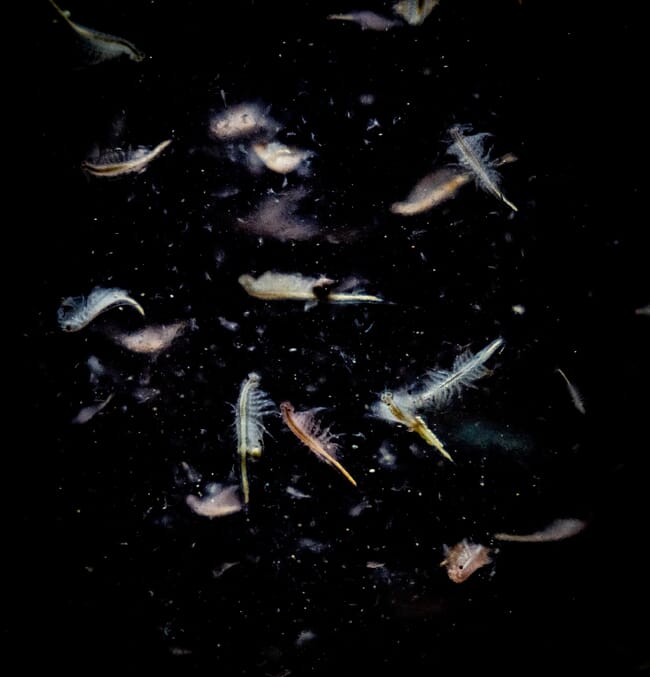
© Kieran Magee/Aquanzo
Aquanzo, an Edinburgh-based startup, is aiming to support the growth of the global aquaculture sector with the development of a new, modular farm system fuelled by food, drink, and agricultural by-products.
Collaborating with CENSIS – Scotland’s innovation centre for sensing, imaging, and Internet of Things (IoT) technologies – Aquanzo farms artemia, a high-protein species of brine shrimp, for use as an aquafeed ingredient. Whilst Artemia occur naturally in warm salt lakes across the US, China, and Eurasia, Aquanzo is developing RAS technology to culture the crustaceans using nutrient-rich by-products of other industries, such as malt waste from whisky production.
"We need to decouple aquaculture from maxed-out fisheries and find new ways of providing sustainable sources of protein to help the sector feed a growing world population,” said Aquanzo co-founder and chief executive officer Rémi Gratacap, in a press release from the company.
An alternative to current methods of harvesting artemia where they naturally occur, and exporting them to where they are required, the modular recirculating aquaculture system being developed by Aquanzo at Heriot-Watt University would allow artemia to be grown wherever they are in demand.
“Farming, rather than harvesting, important components of feed like artemia is a better way of ensuring greater control and scale, and is similar to what is already being done with insect farms, only with marine ingredients,” said Gratacap.
Deployed on land near agricultural processing facilities so that there is no impact on the marine ecosystem, the Aquanzo RAS system is expected to reduce the amount of CO2 created in the production of fishmeal by 20 percent, compared with traditional ingredient sources. All of the water will be re-used to further reduce the environmental impact of the system.
“The system we’re developing will give fish farmers long-term access to a sustainable source of marine protein, helping to continue aquaculture’s growth, enhance the health of their fish, make use of another industry’s waste, and support aquaculture’s net-zero goals,” Gratacap added.
As part of the process and technical development of the project, CENSIS engineers will collaborate with Aquanzo on the integration of an array of sensors and a centralised data repository to help the production team collect, store, and process data. The technology will help the company progress towards the development of a fully mobile recirculating system, which can remotely monitor the welfare and growth of artemia, and be located wherever agricultural by-products are available.




